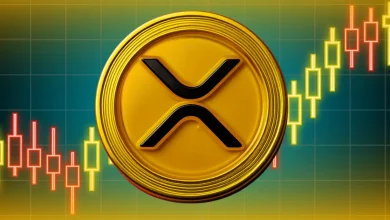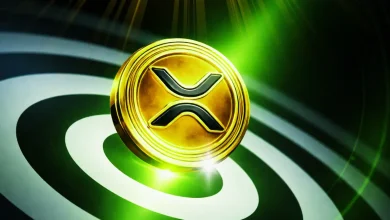
Nigeria’s CBN and SEC unite to craft a sustainable crypto regulation framework, marking a major policy shift under President Tinubu’s administration.
CBN–SEC partnership signals Nigeria’s crypto reset, aiming to balance innovation and regulation as the nation eyes leadership in Africa’s digital economy.
Nigeria is rewriting its digital finance playbook as the Central Bank of Nigeria (CBN) and the Securities and Exchange Commission (SEC) team up to create a sustainable framework for digital currencies and crypto regulation. This collaboration marks a major policy shift under President Bola Tinubu’s administration, potentially redefining Nigeria’s place in the global digital asset and blockchain ecosystem.
CBN and SEC Unite for a Sustainable Digital Currency Framework
In a notable policy reversal, CBN Governor Olayemi Cardoso announced the partnership during his annual lecture at Lagos Business School, signaling a renewed commitment to innovation, regulation, and financial stability.
“We are working together to midwife a process that is sustainable with respect to digital currency,” Cardoso said. “Our focus is to ensure innovation thrives within a secure and well-regulated environment.”
This collaboration is part of a broader regulatory reset aimed at correcting the restrictive policies of the past. Under former Governor Godwin Emefiele, the CBN had effectively banned financial institutions from engaging with crypto-related businesses—triggering outrage across Nigeria’s vibrant digital asset community.
The friction between the CBN and the SEC, which had previously taken a more measured stance toward crypto, created confusion and uncertainty, stifling innovation and leaving startups unsure of their legal standing.
Nigeria’s Shift in Crypto Regulation 2025
The tone changed dramatically after President Bola Tinubu took office in May 2023. Since then, the CBN has softened its stance and allowed the SEC to lead the development of Nigeria’s crypto regulatory landscape.
Governor Cardoso admitted that regulators had been “caught off guard by how quickly Nigerians embraced cryptocurrencies.” He emphasized the need for a coordinated, adaptive framework that keeps pace with global innovation.
With Nigeria consistently ranking among the top countries worldwide for crypto adoption, this policy U-turn underscores a growing recognition that digital assets are here to stay. Rather than resorting to prohibitive measures, regulators are now focused on building a balanced, forward-looking crypto policy that supports innovation while protecting consumers.
Nigeria’s Blockchain and Fintech Innovation Strategy
While the details of the new CBN-SEC crypto framework remain undisclosed, experts say this alliance could unlock new opportunities for fintech growth, attract foreign investment, and position Nigeria as a regional leader in regulated blockchain innovation.
“If Nigeria gets this right, it could become the fintech capital of Africa,” said a Lagos-based blockchain analyst. “A clear and consistent policy is what investors have been waiting for.”
The new framework is expected to strike a balance between financial stability and innovation, a vital step for a nation where crypto has become both a tool of economic empowerment and a means of preserving value amid currency fluctuations.
Nigeria’s evolving stance could also set a precedent for other African nations, inspiring them to adopt smart crypto regulations that turn resistance into opportunity in the digital economy era.
Never Miss a Beat in the Crypto World!
Stay ahead with breaking news, expert analysis, and real-time updates on the latest trends in Bitcoin, altcoins, DeFi, NFTs, and more.
FAQs
The exact date hasn’t been disclosed, but regulators are actively working on it in 2025 to ensure a balanced rollout for innovation and stability.
Yes, crypto use by individuals is not banned. The new framework will provide clearer rules for businesses, banks, and startups working in the space.
Nigeria consistently ranks among the top countries worldwide for crypto adoption, showing strong retail usage and demand for digital assets.
Yes, startups will gain more clarity and regulatory support, helping them operate legally and scale without the past uncertainty they faced.
Trust with CoinPedia:
CoinPedia has been delivering accurate and timely cryptocurrency and blockchain updates since 2017. All content is created by our expert panel of analysts and journalists, following strict Editorial Guidelines based on E-E-A-T (Experience, Expertise, Authoritativeness, Trustworthiness). Every article is fact-checked against reputable sources to ensure accuracy, transparency, and reliability. Our review policy guarantees unbiased evaluations when recommending exchanges, platforms, or tools. We strive to provide timely updates about everything crypto & blockchain, right from startups to industry majors.
Investment Disclaimer:
All opinions and insights shared represent the author's own views on current market conditions. Please do your own research before making investment decisions. Neither the writer nor the publication assumes responsibility for your financial choices.
Sponsored and Advertisements:
Sponsored content and affiliate links may appear on our site. Advertisements are marked clearly, and our editorial content remains entirely independent from our ad partners.








